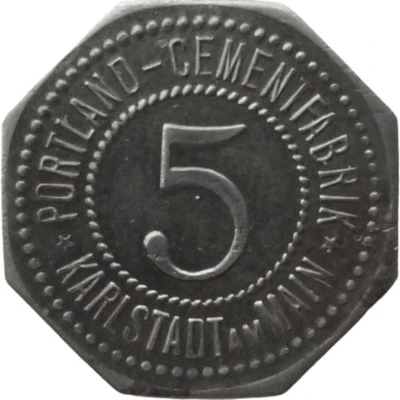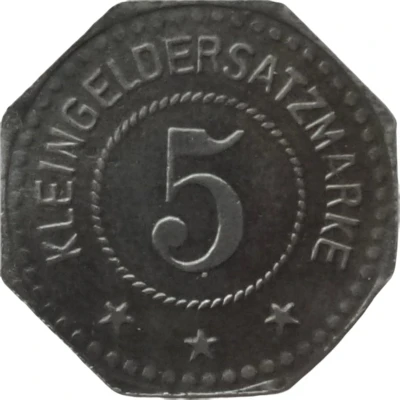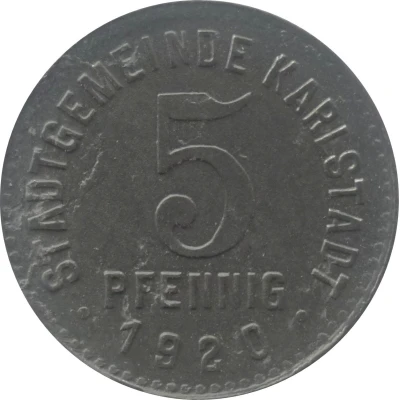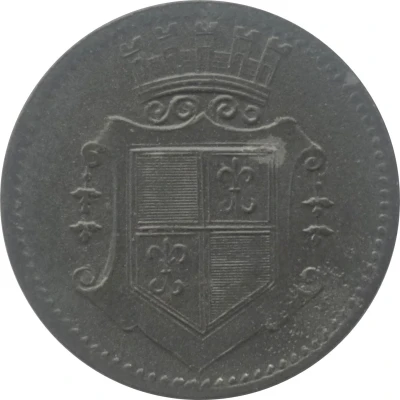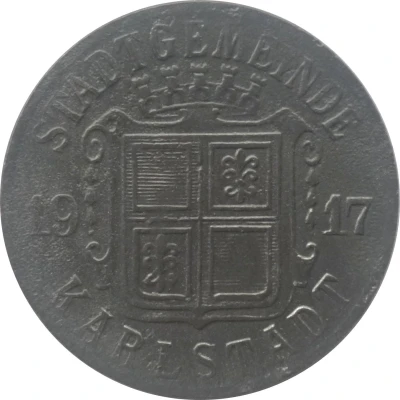
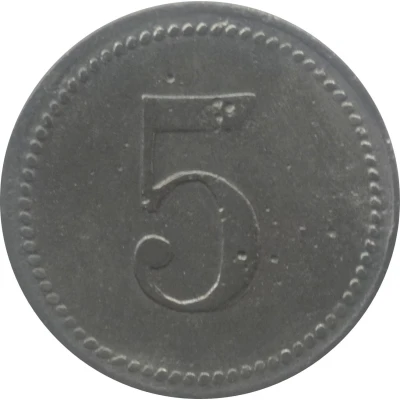

© Willem63 (CC BY-NC-SA)
5 Pfennigs - Karlstadt
1917 year| Zinc | 1.3 g | 18.1 mm |
| Issuer | City of Karlstadt am Main (Federal state of Bavaria) |
|---|---|
| Emperor | William II (Wilhelm II) (1888-1918) |
| Type | Standard circulation coin |
| Year | 1917 |
| Value | 5 Pfennigs (5 Pfennige) (0.05) |
| Currency | Mark (1914-1924) |
| Composition | Zinc |
| Weight | 1.3 g |
| Diameter | 18.1 mm |
| Thickness | 0.8 mm |
| Shape | Round |
| Technique | Milled |
| Orientation | Medal alignment ↑↑ |
| Demonetized | Yes |
| Updated | 2024-10-04 |
| Numista | N#76964 |
|---|---|
| Rarity index | 89% |
Reverse
Pearl rim, with denomination centered
Script: Latin
Lettering: 5
Edge
Plain
Comment
Issuing body: [Stadt, Bayern].Interesting fact
The 5 Pfennigs - Karlstadt 1917 coin was minted during a time of economic turmoil in Germany, known as the "Inflationary Period" (1914-1923), when the value of the German mark plummeted, and the prices of goods and services skyrocketed. To combat this issue, the government introduced a new currency, the "Papiermark," which was backed by a gold standard, and featured a series of coins with lower denominations, such as the 5 Pfennigs coin. This coin, in particular, was minted in the city of Karlstadt am Main, in the federal state of Bavaria, and was made of zinc, which was a more affordable and accessible material than other metals at the time. Despite its low value, the coin remains an interesting piece of history, especially for collectors and enthusiasts of numismatics.
